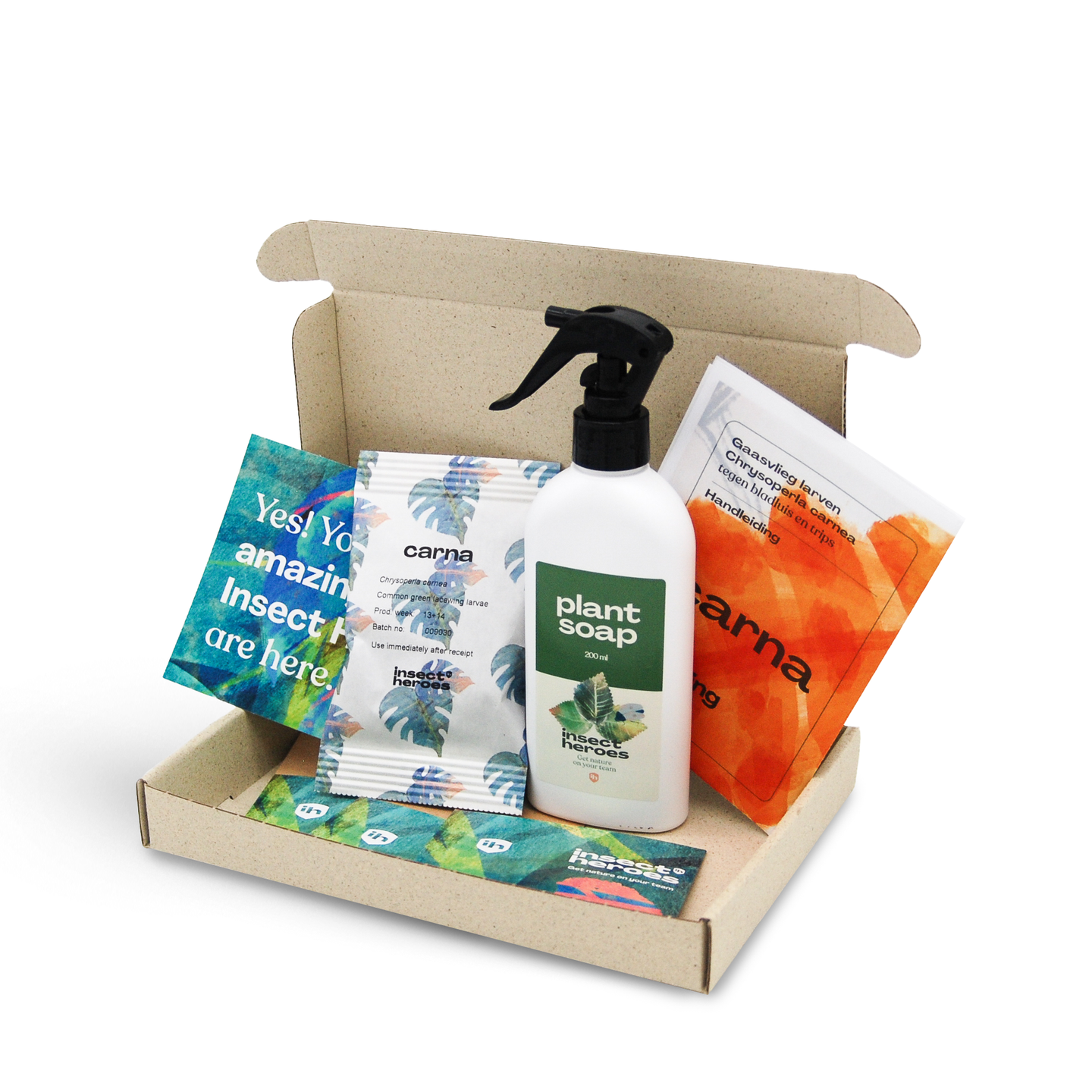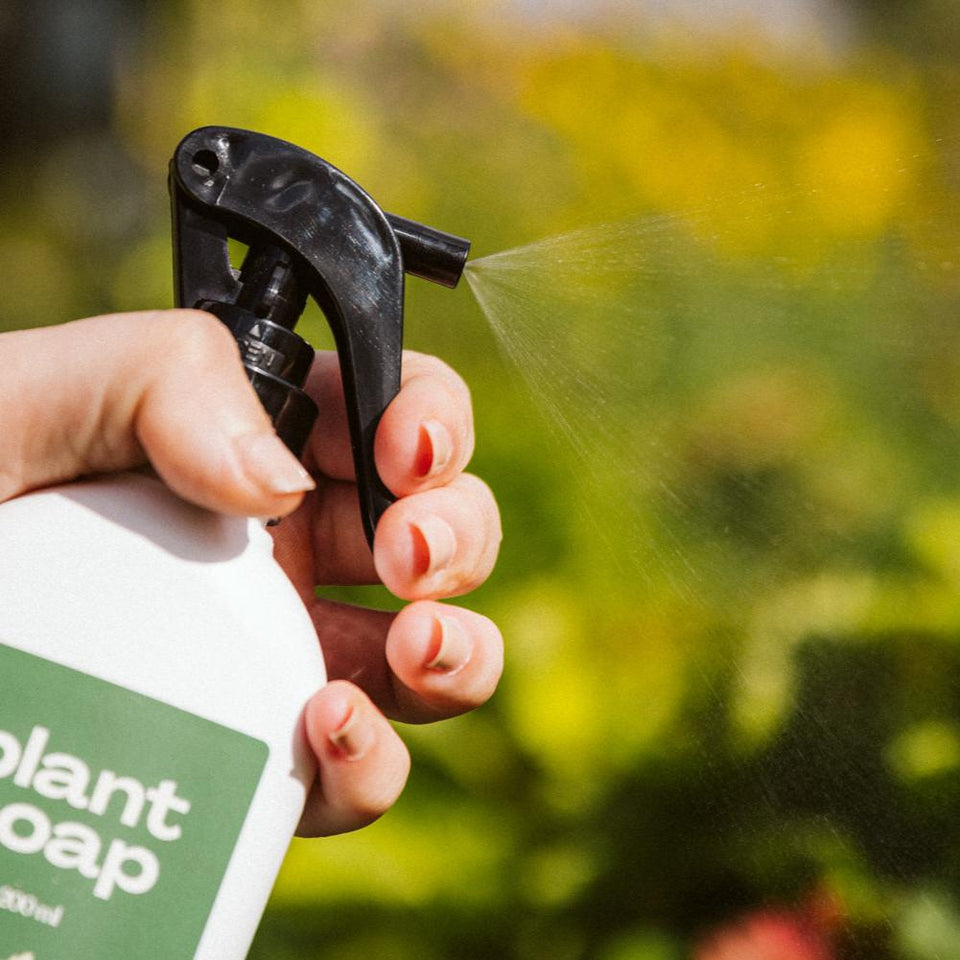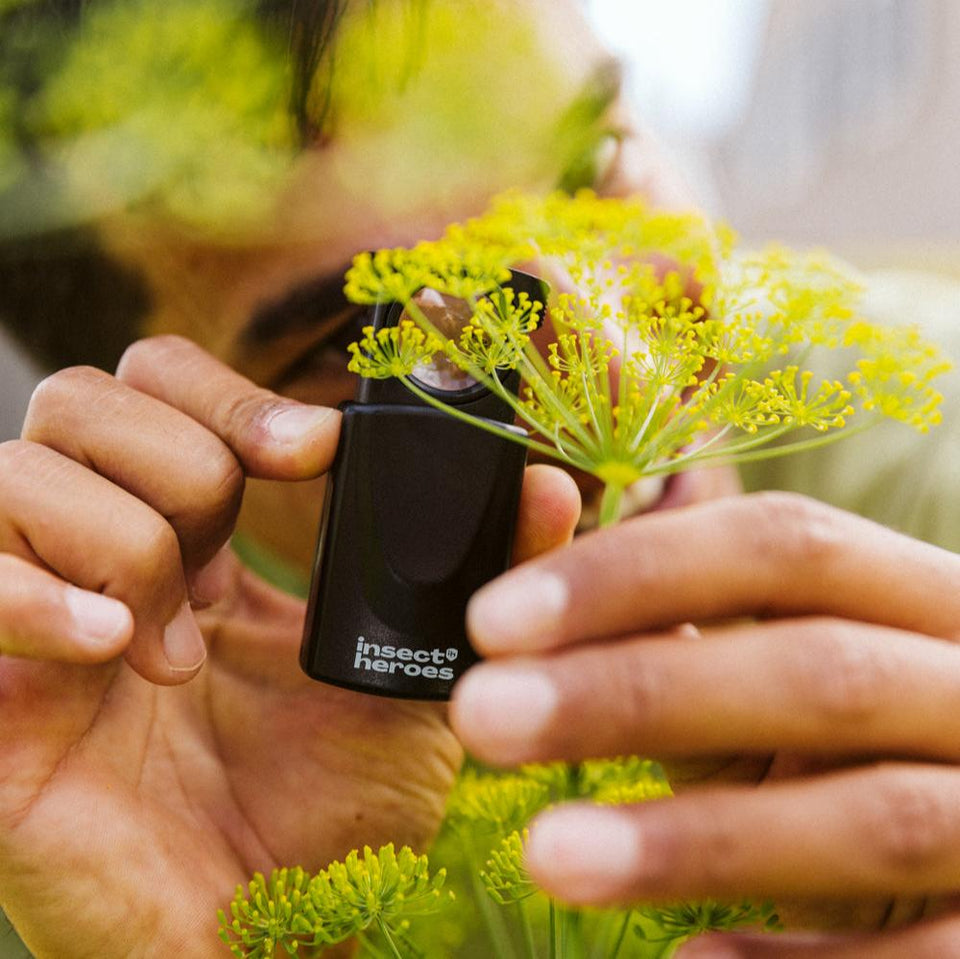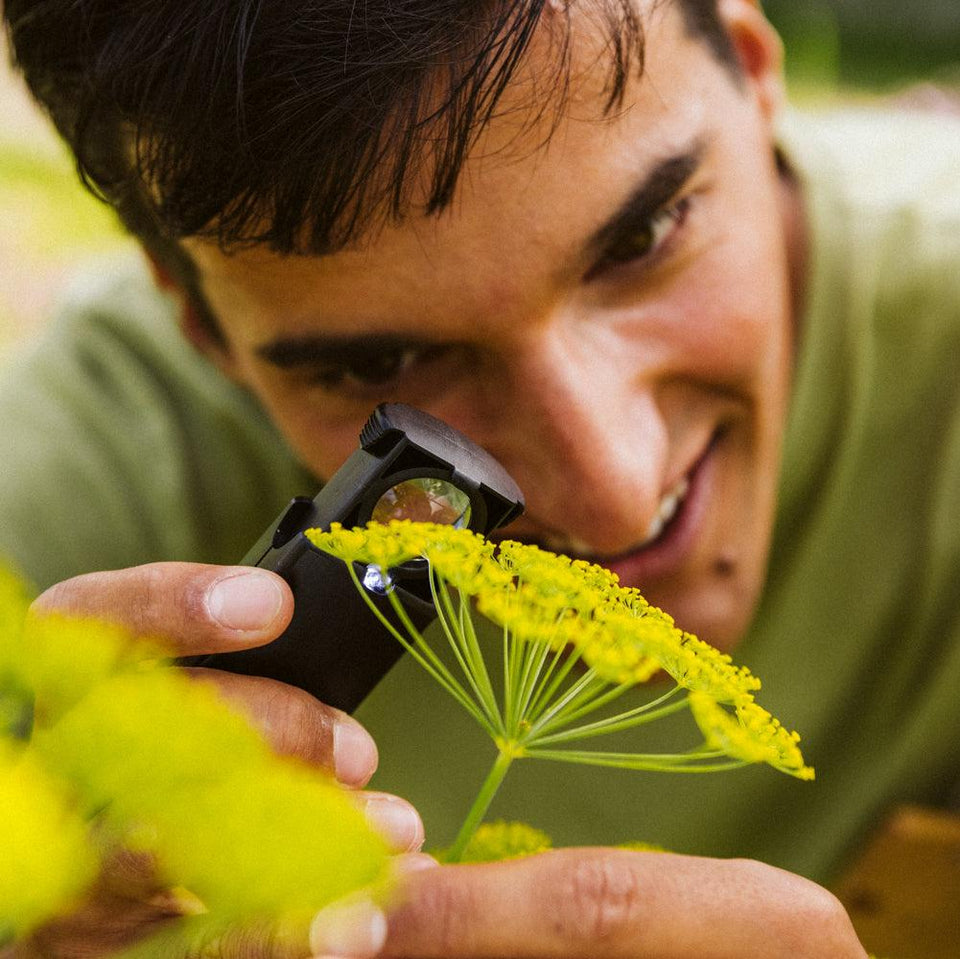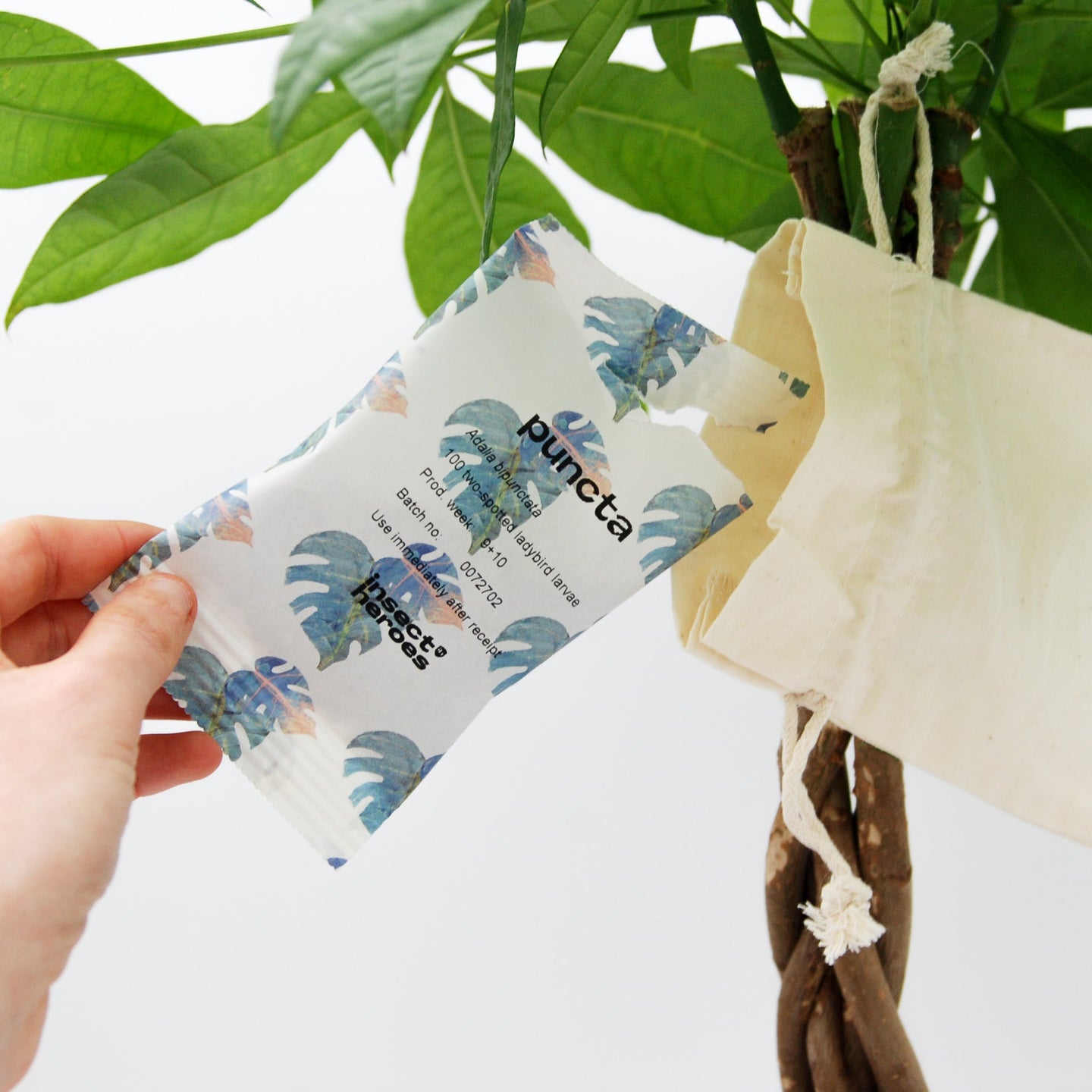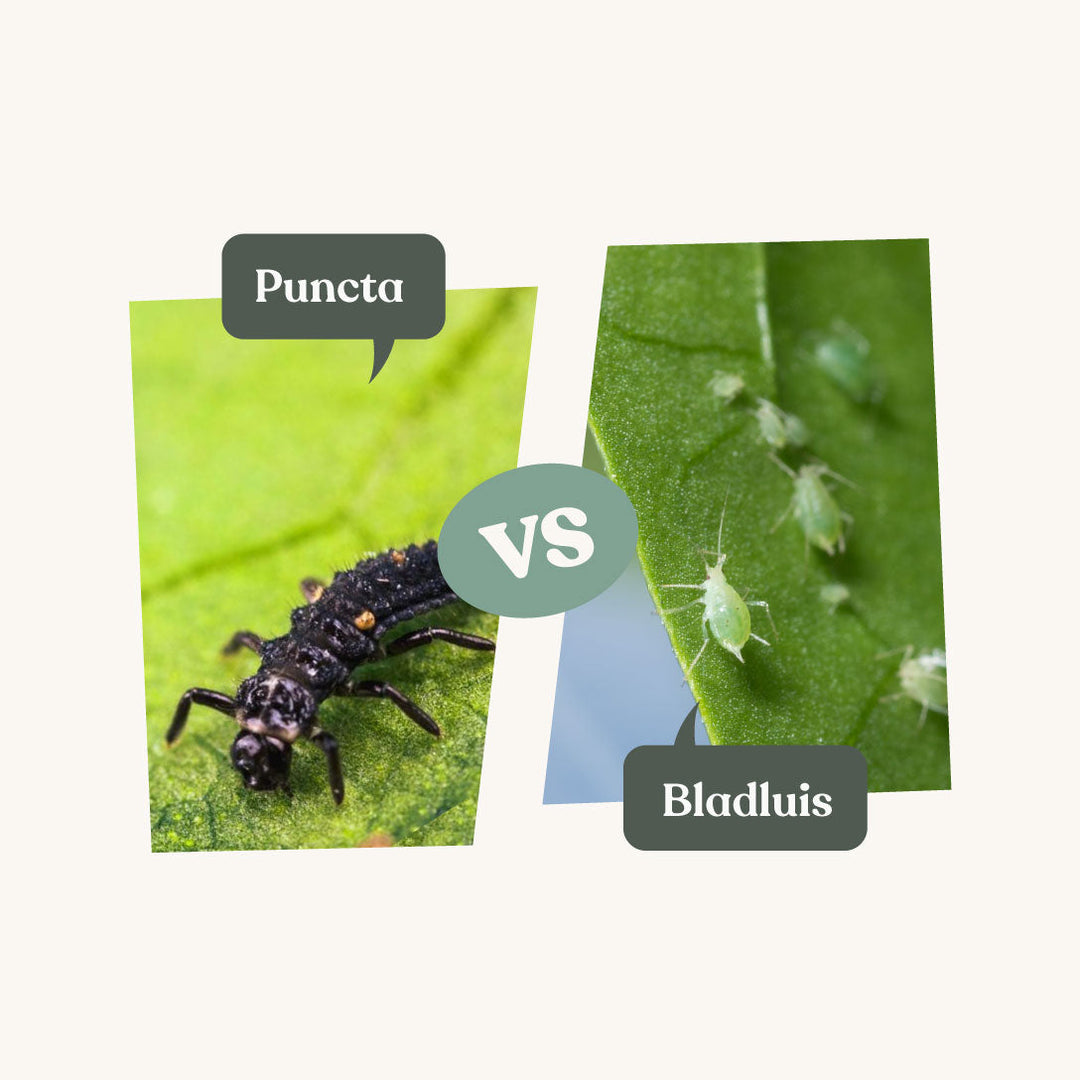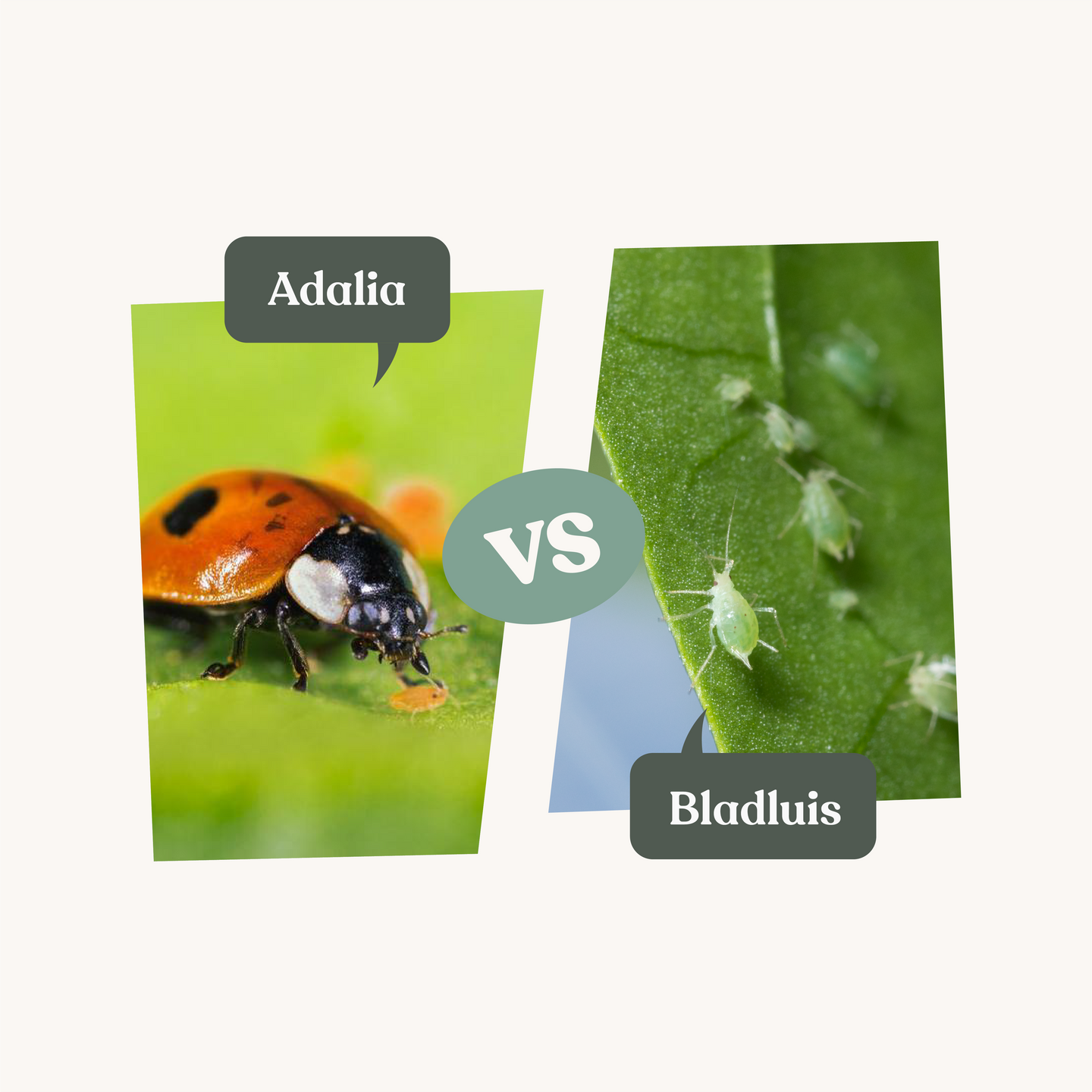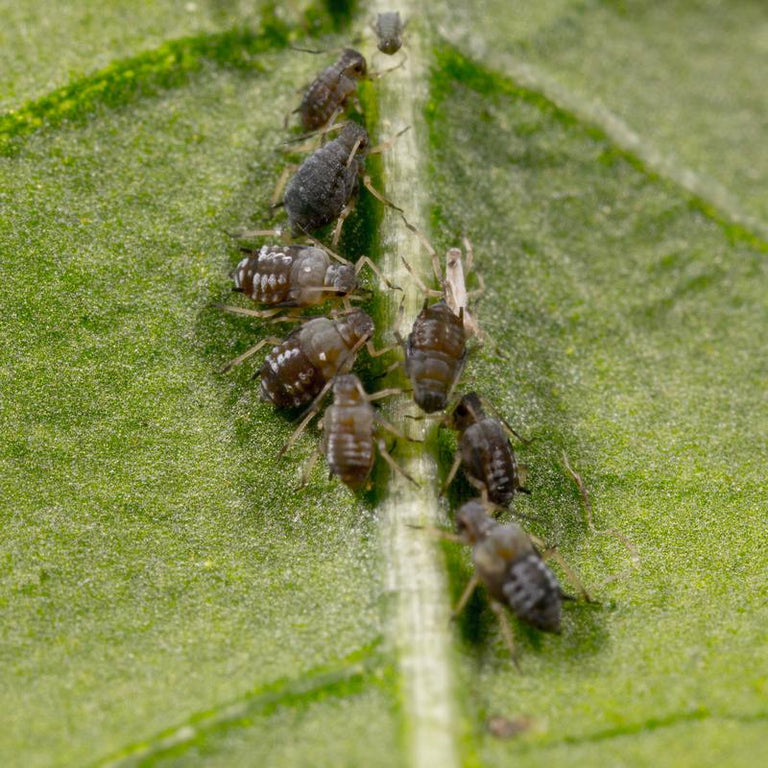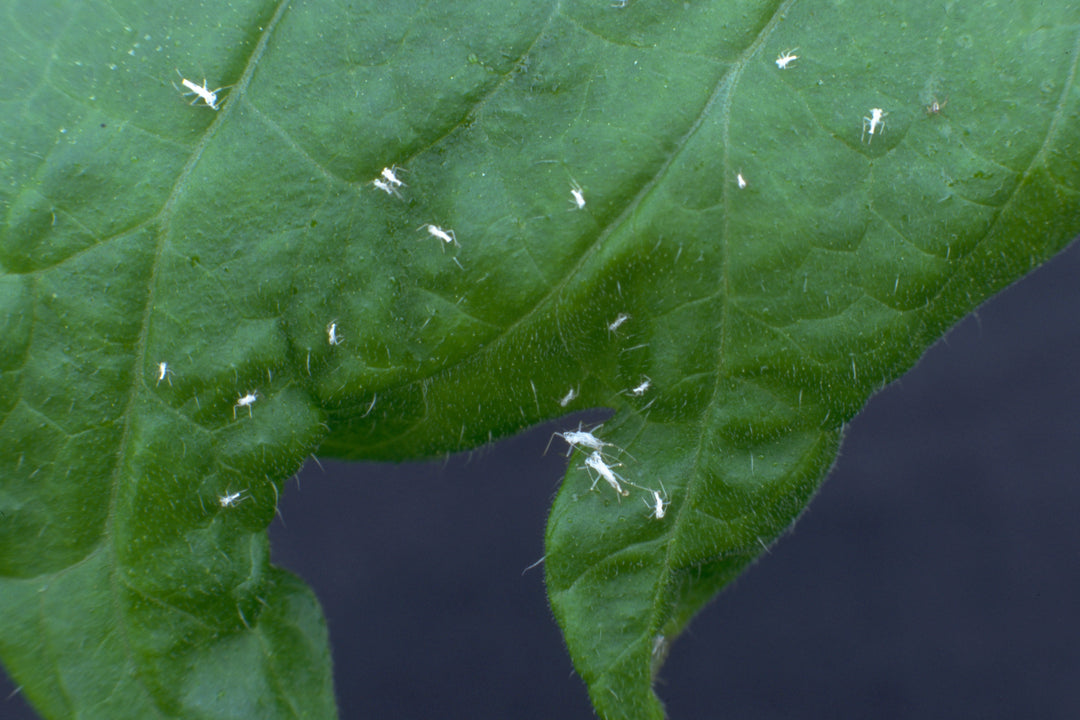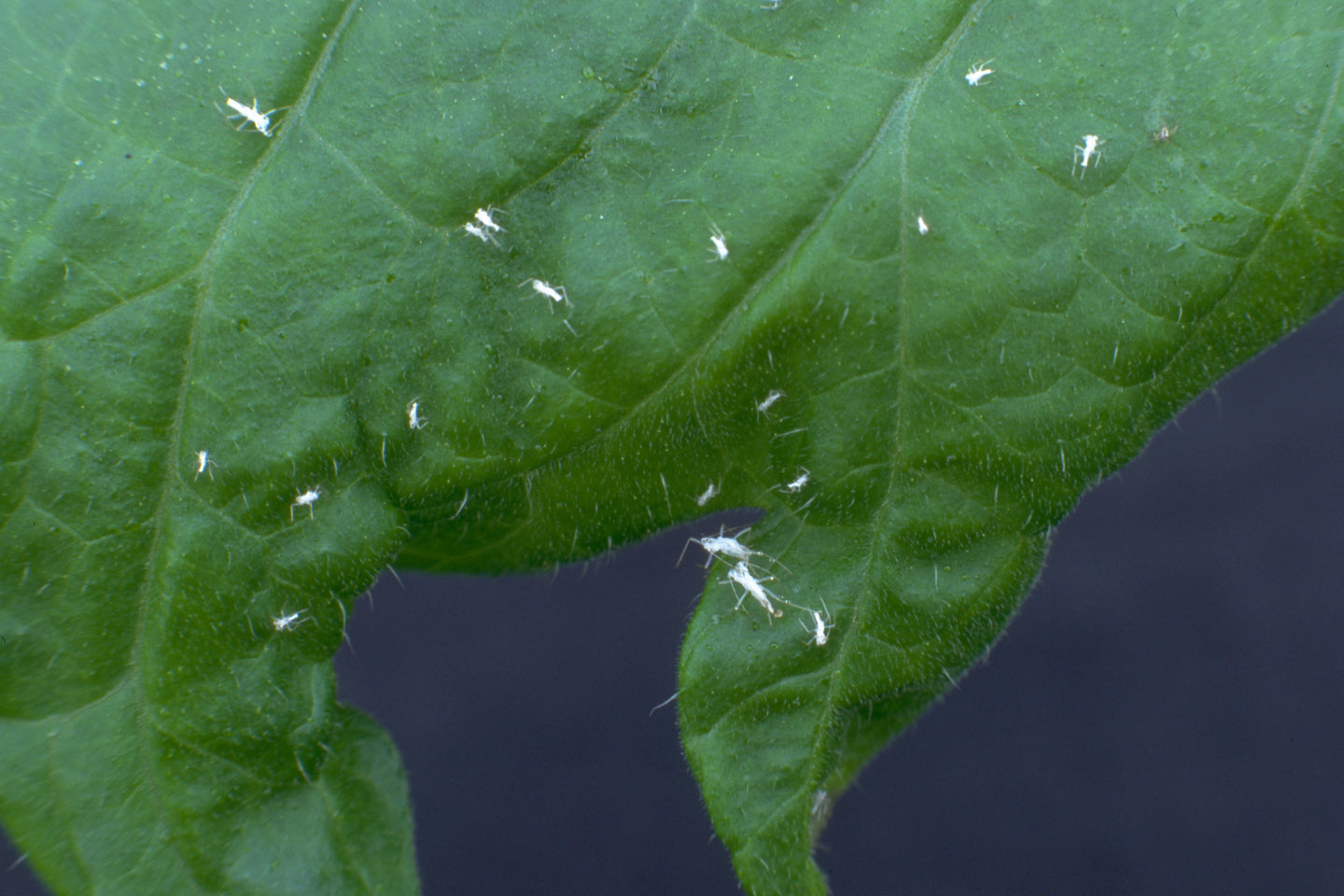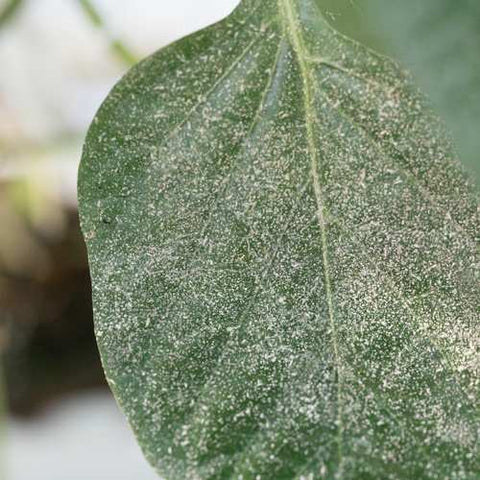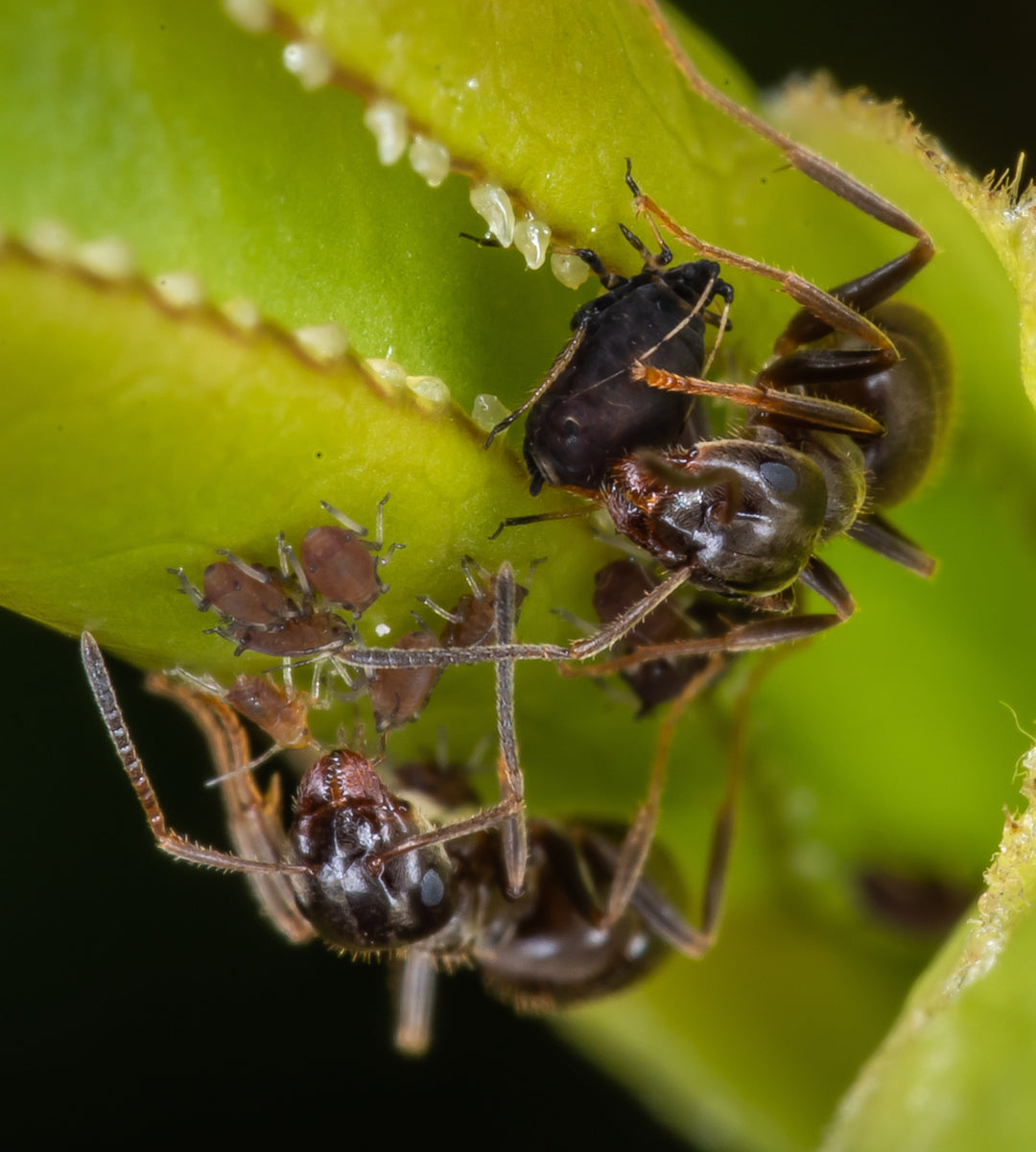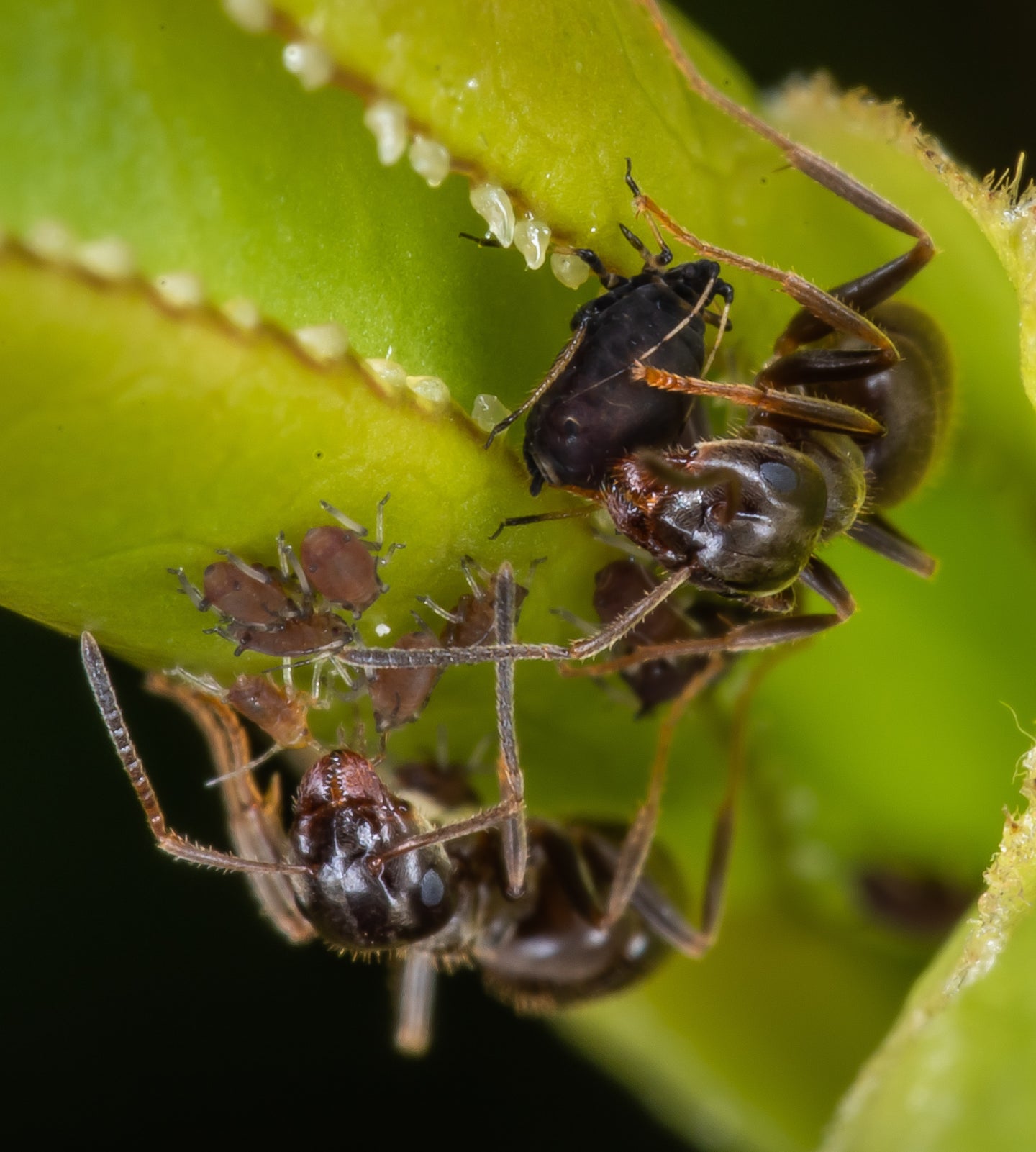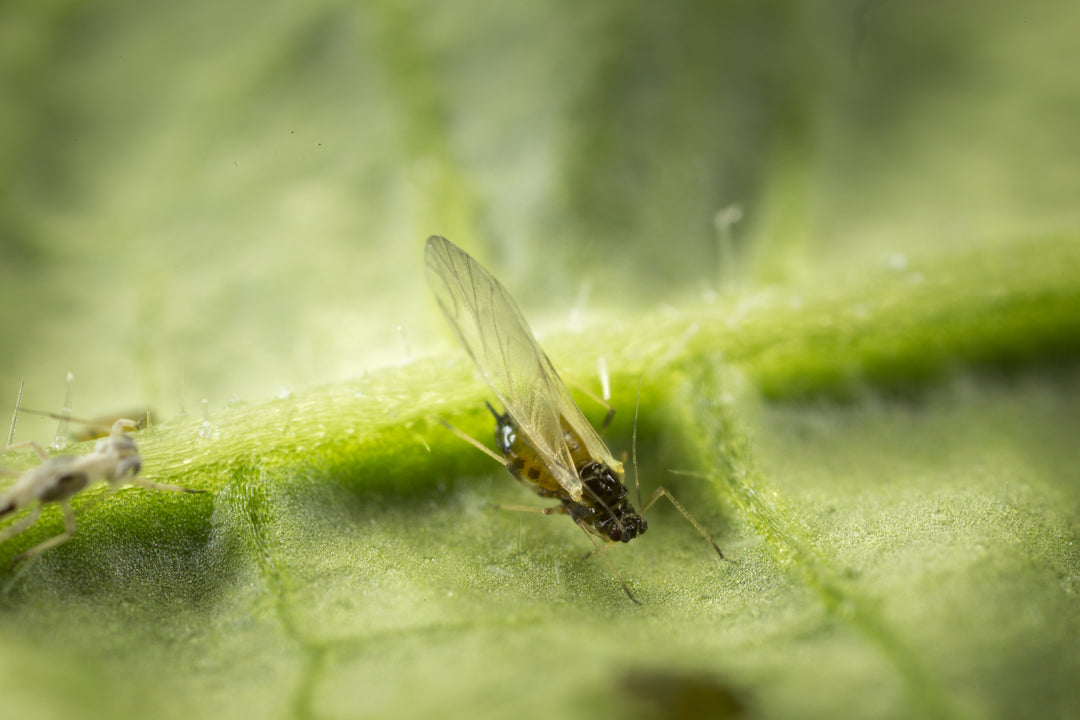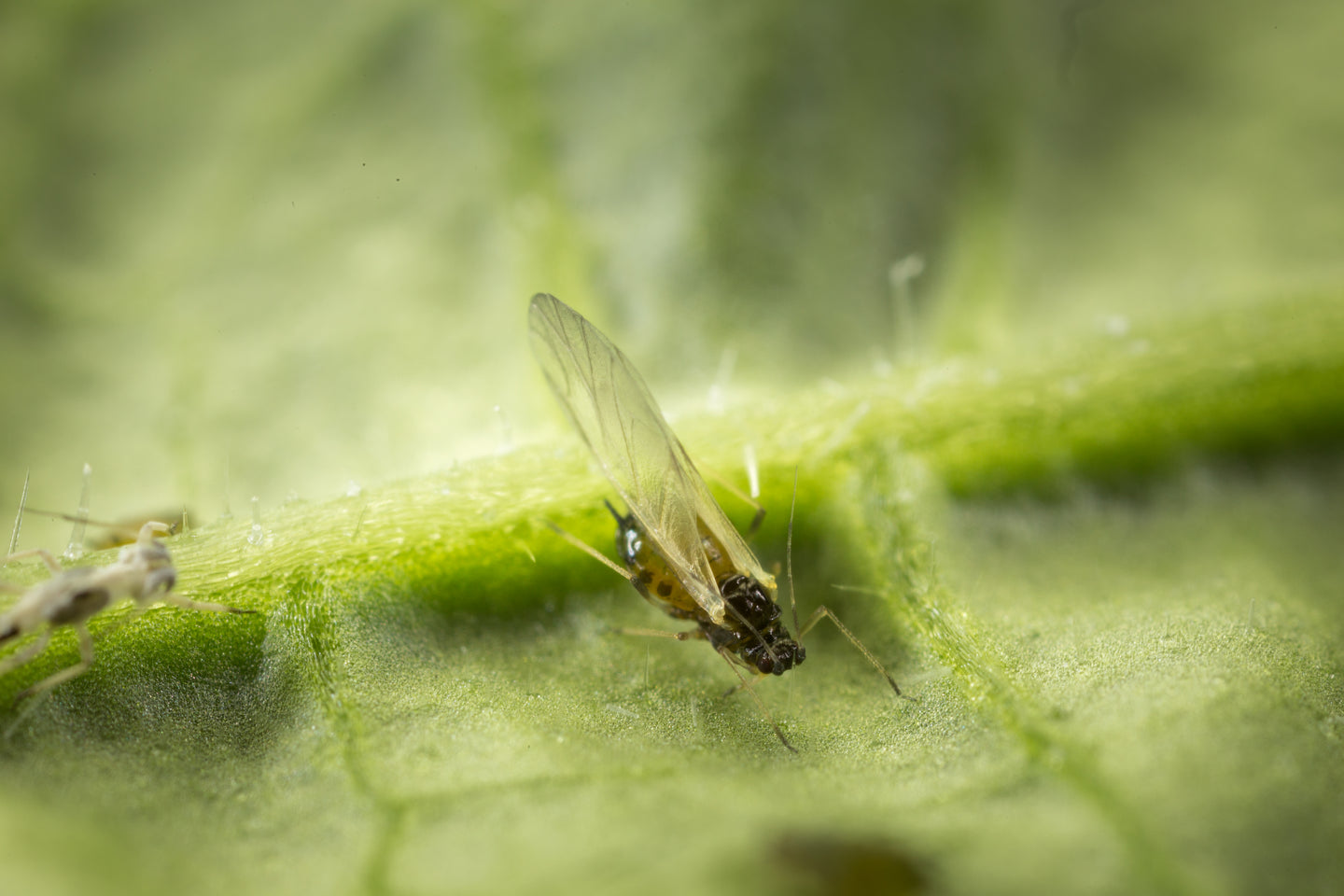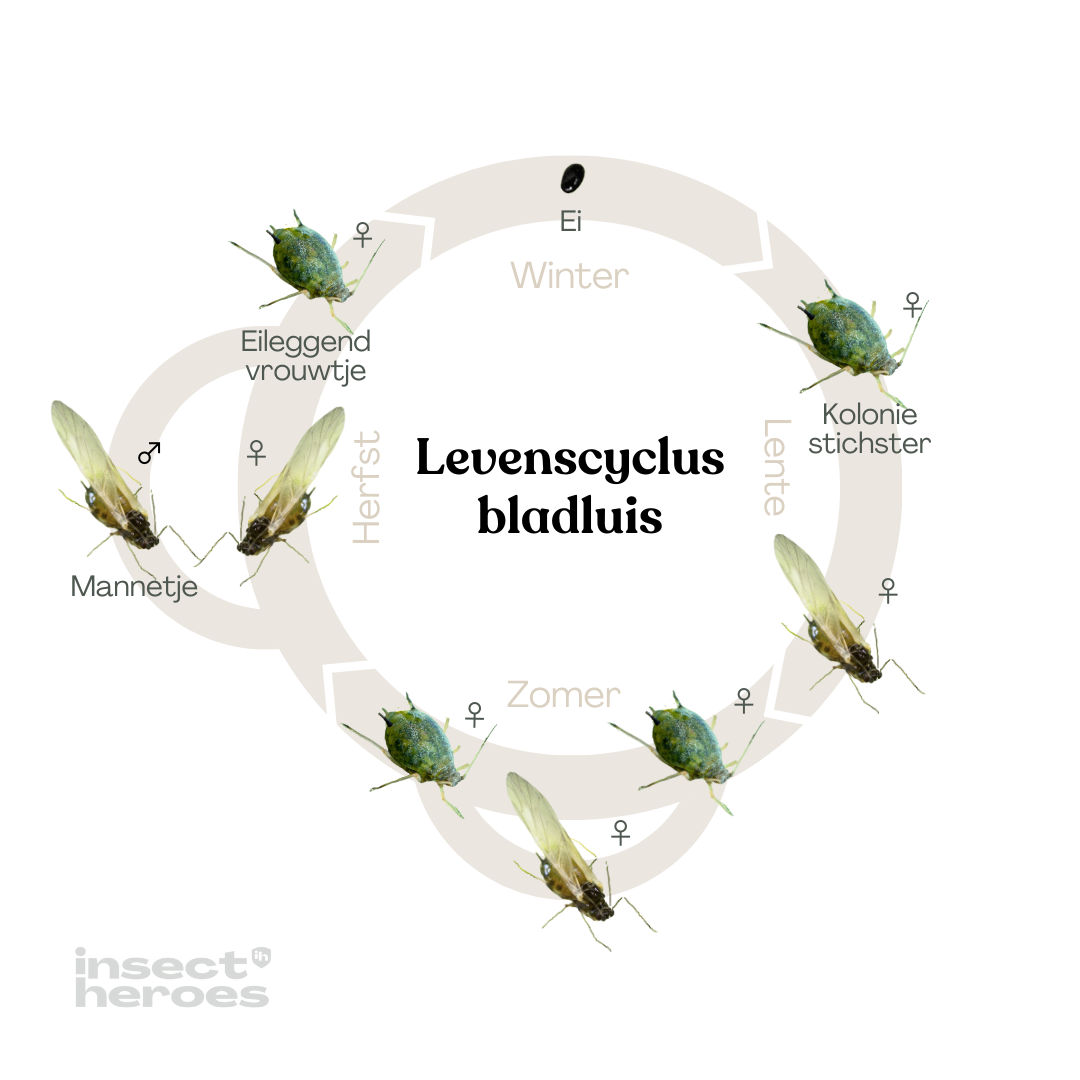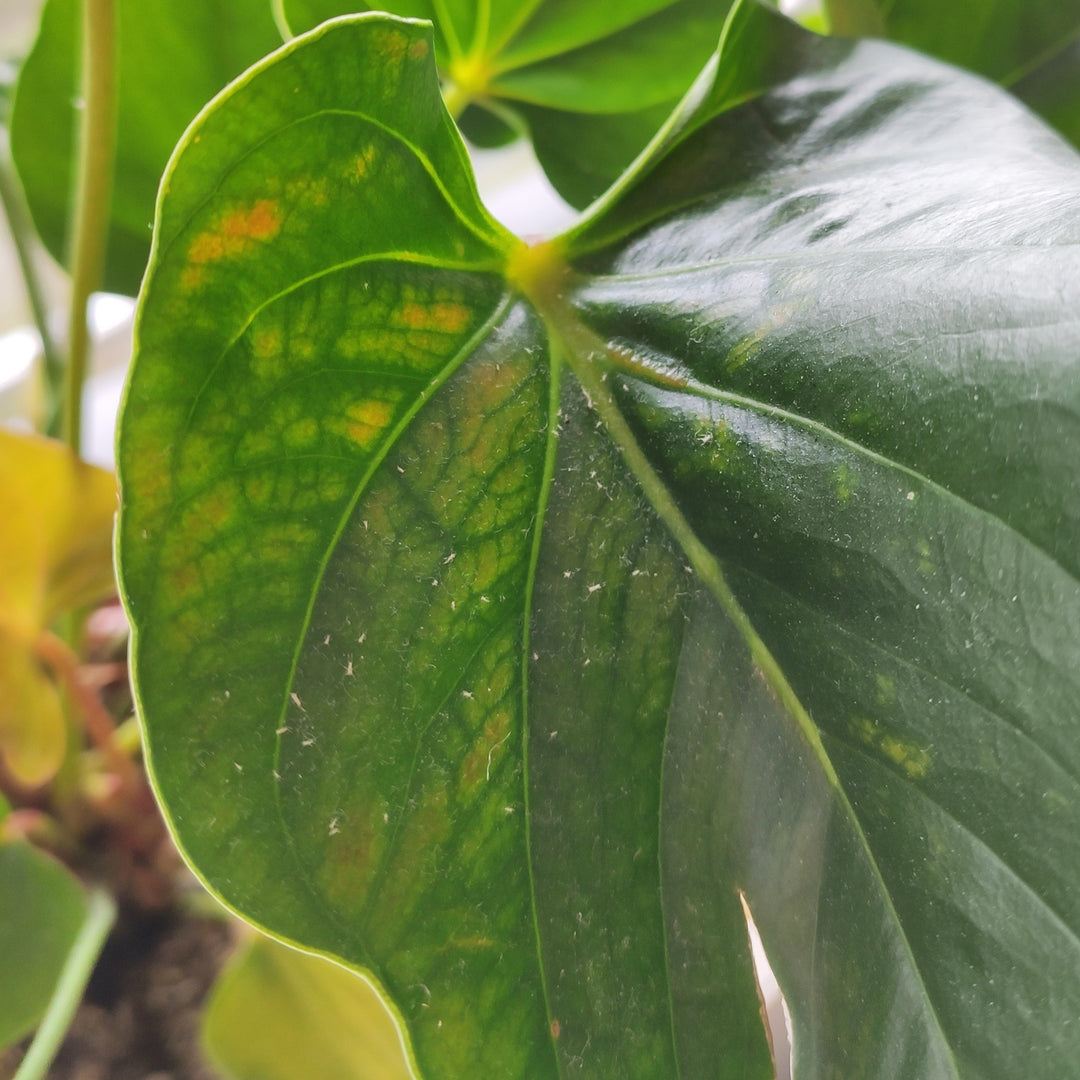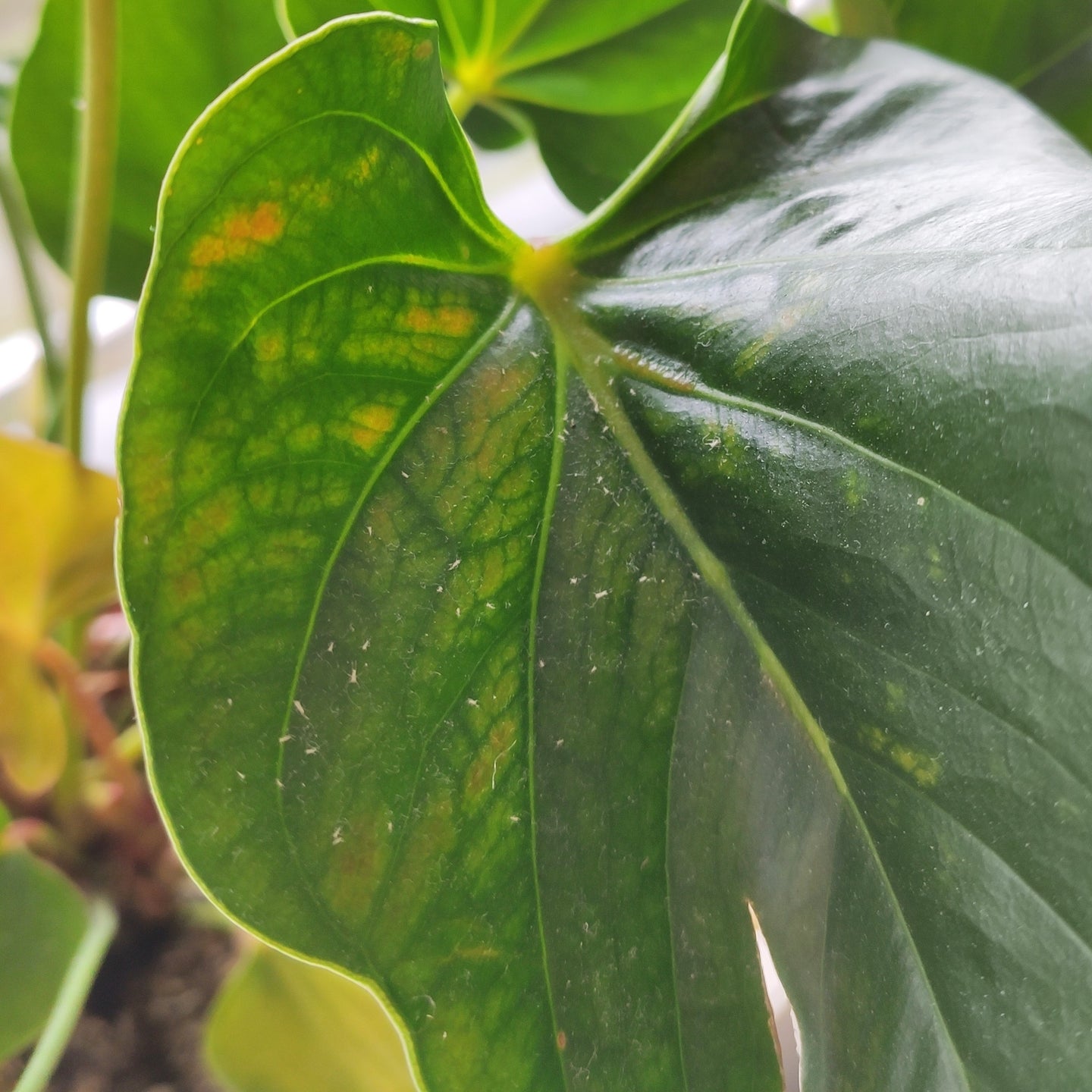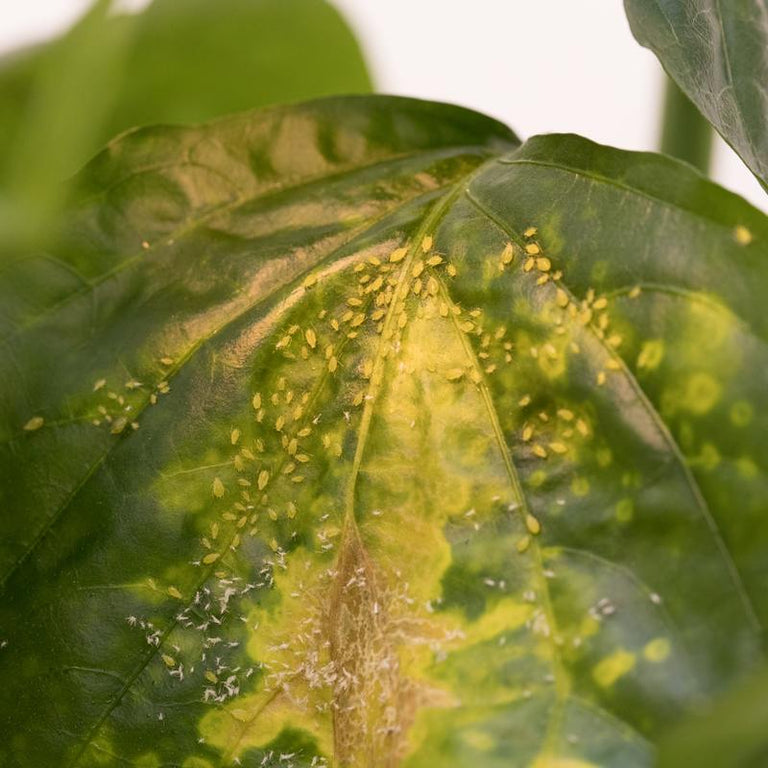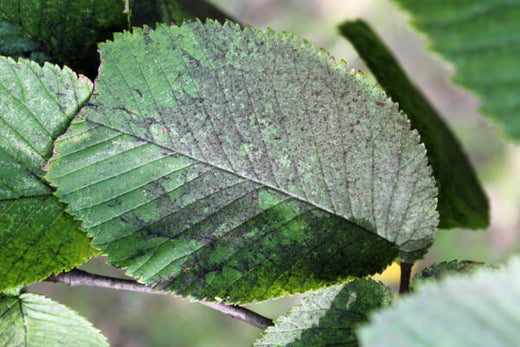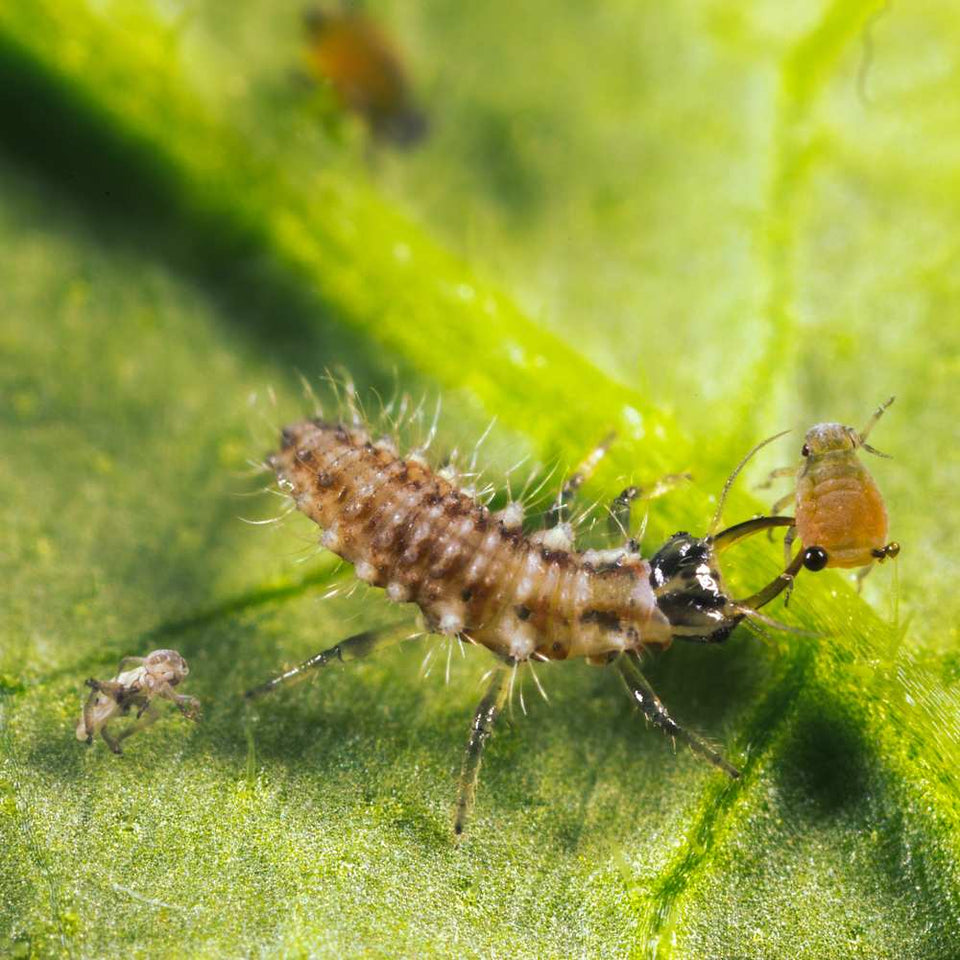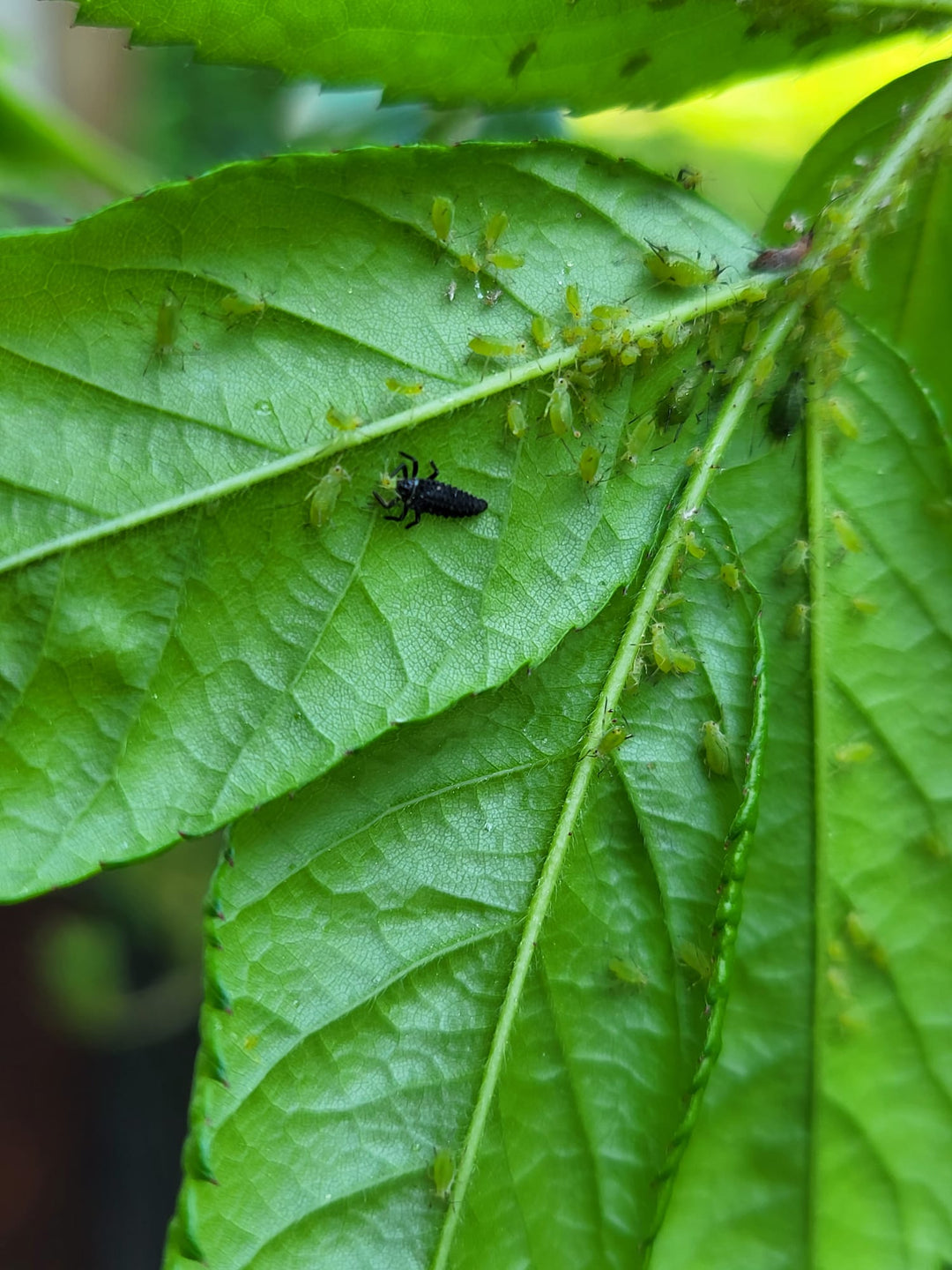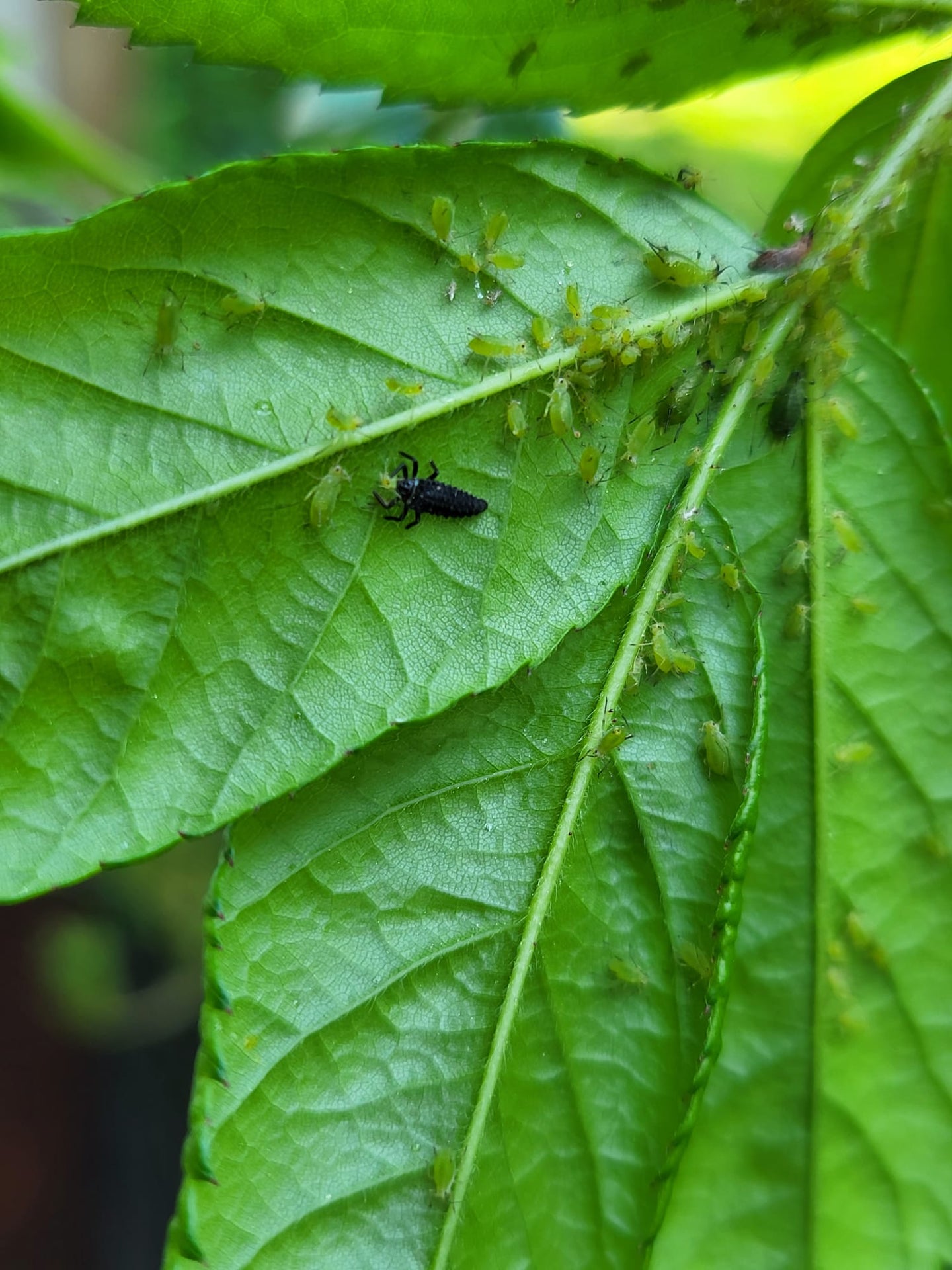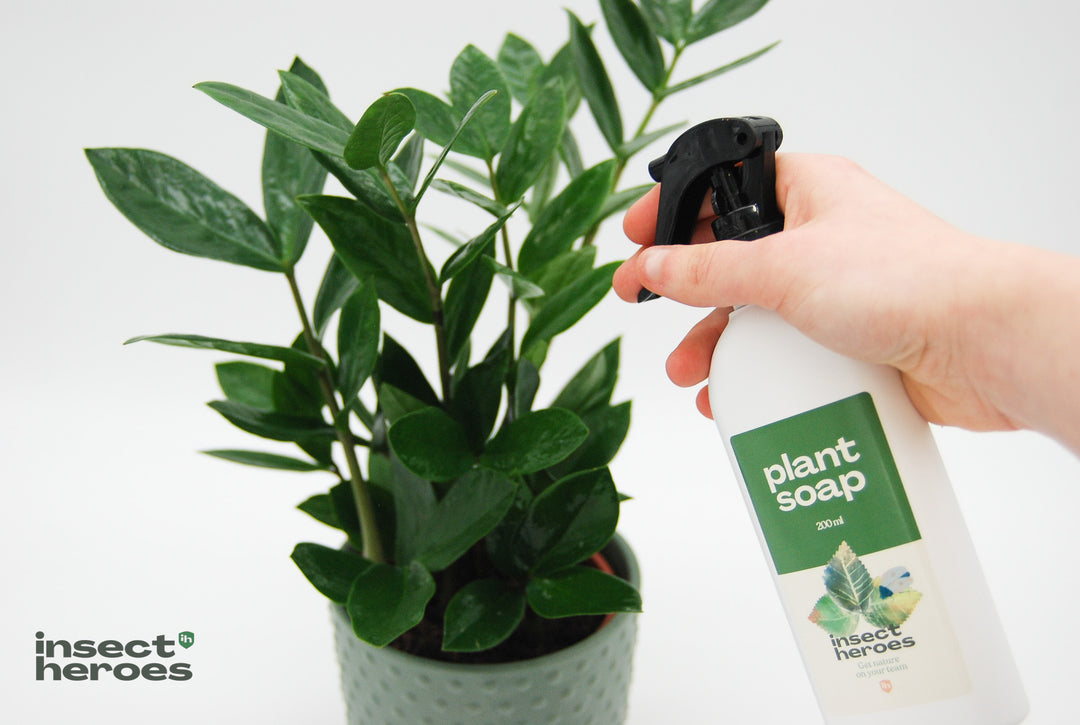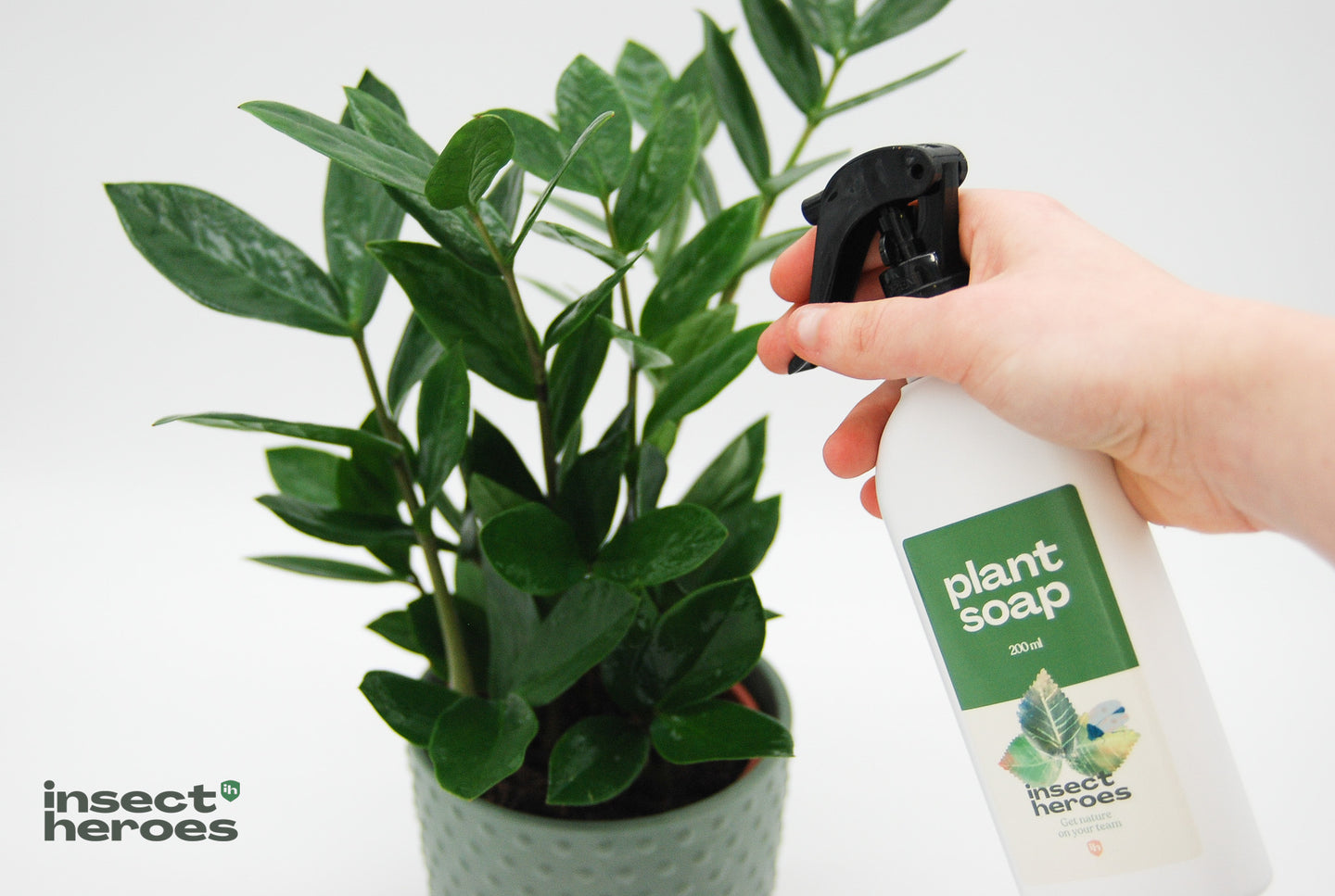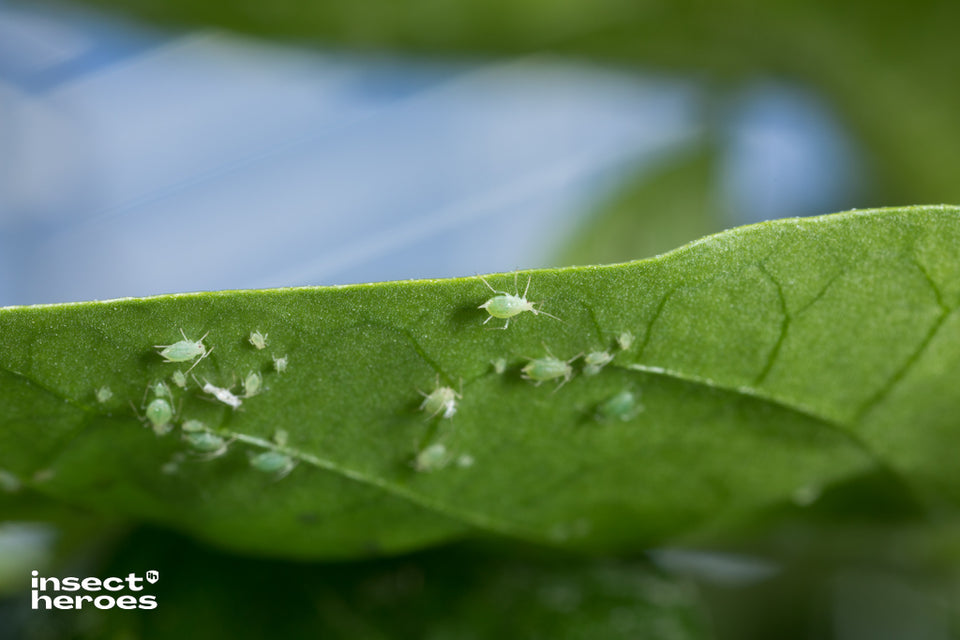Recognize, control and prevent aphids
Recognizing aphids
Aphids are small, round insects of a few millimeters in size. They are easy to spot with the naked eye. The bugs can be green, yellowish, black or gray in color. Some aphids have wings and can therefore spread quickly. The bulbous insects like to sit in groups near the buds of flowers, on stems or on the underside of leaves.
Aphid development
Aphids quickly become a pest because of their extraordinary reproduction rate. At warm temperatures, females can clone themselves, causing viviparous young to immediately start absorbing plant sap. If a plant becomes overcrowded, some aphids develop wings and fly to other plants. In the fall, females produce males for sexual reproduction and eggs are laid. The eggs overwinter and new females emerge in the spring.
Under optimal conditions, aphids can mature within a week. Females can produce between 40 and 100 offspring, which amounts to 3 to 10 offspring per day.
Aphid damage
Aphids suck plant sap from leaves, causing the plant to weaken and grow less well. If there is a large infestation of aphids, the leaves may deform and young plants may die. Aphids can also transmit plant viruses from plant to plant.
Aphids prefer young and healthy leaves and growing tips. Plants that are sensitive to aphids are roses, apple trees, or houseplants with soft leaves such as Calatheas or Alocasias.
Control aphids
Aphids reproduce very quickly. Therefore, take action immediately when you see the first aphid. Cut off the affected parts of the plant and spray the plant with Plant Soap . Once the liquid has dried, use Carna lacewing larvae or Puncta ladybirds to combat the aphids naturally.
Preventing aphids
To prevent aphids, it is advisable to check the leaves, shrubs or tree regularly. Especially the underside of the leaves, where the aphids like to live. Fertilize the plants well during the growing season and water them regularly. They also like to rinse the plants every now and then and this also sprays off any possible bugs.
Prevent aphids in houseplants
Make sure the plants are not exposed to draughts. The plants do not like this and aphids can enter your room unnoticed from outside. If you suspect aphids, you can also clean the leaves with Plant Soap .
Preventing aphids in the garden
To prevent aphids in the garden, it is best to attract natural enemies. Plant native plants in the garden that are attractive to insects. Create mess corners in the garden where insects can hide. You can also place strong-smelling plants in the garden, such as garlic next to a rose, to protect the rose.
Other ways to control aphids
It is important to be careful when choosing remedies to control aphids, as not all so-called 'natural' solutions are actually beneficial to the environment.
Want to know more about this? Then read further in this blog.
View our overview page with all pests.









































